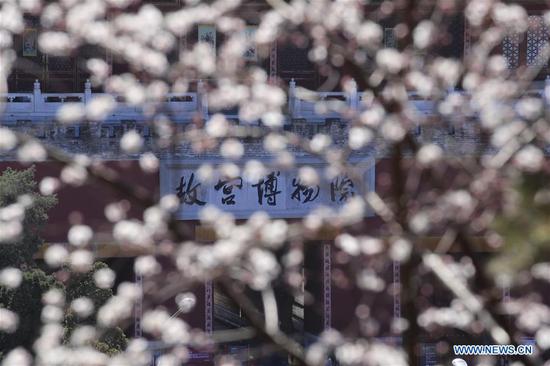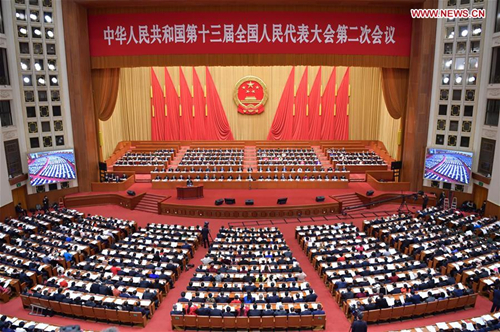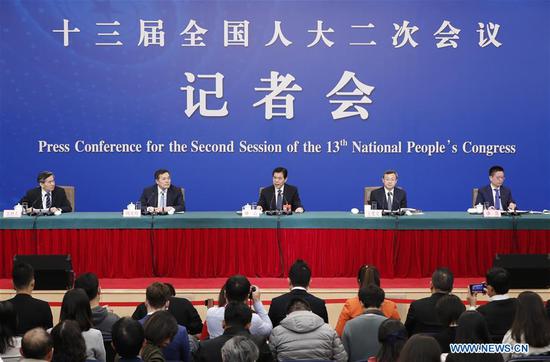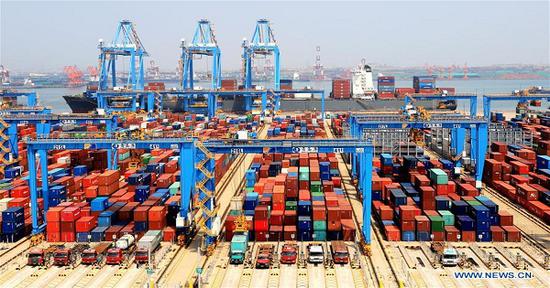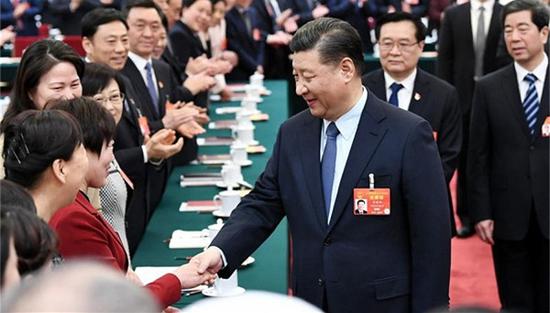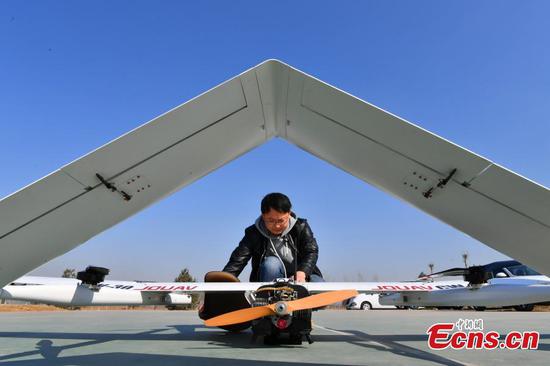Topping the agenda at the National People's Congress annual session this week will be the question of adopting a new law for foreign investment. The unified law will replace the three existing laws on Chinese-foreign equity joint ventures, wholly foreign-owned enterprises and Chinese-foreign contractual joint ventures. Which makes me feel nostalgic, as I was one of the early "China trade lawyers" to travel across the country in the 1980s and 1990s to negotiate joint venture deals to bring multinationals into China's market.
China's foreign investment legislation has developed piecemeal over the past four decades, beginning with the first law on Chinese-foreign joint ventures adopted by the NPC in 1979, when China was just beginning to open its doors to foreign investment, and foreign investors had little understanding of the Chinese market. Many foreigners did not know how to cope with China's complex system of approvals involving crossover sector permissions from different ministerial or administrative bodies. And Chinese factories did not know how to adapt to foreign management.
From the 1980s onwards, China adopted a gradual, sequenced approach to everything, from economic development to law. The first joint venture law was simple, though initially it was vague on many issues, which at that time remained unknown to Chinese and foreign investors alike. Gradually, when there were enough examples of real joint ventures, the lawmakers looked at these contracts, prepared the salient points, and adopted and implemented regulations.
Foreign holding firms introduced in 1990s
In the early 1990s, some foreign investments involving multiple joint ventures became too unwieldy to manage in terms of accounting, administration and distribution. So foreign investors proposed establishing holding companies, which were new to the Chinese authorities. These, too, were approved ad hoc.
Sure enough, after a few pilot approvals, a draft law was prepared and adopted to govern foreign holding companies. As such, regulating foreign investment and businesses was one of gradual evolution, with legislation most often racing to keep up with the actual investments that were being approved one after another.
Foreign investment just poured into China in the 1990s. Deals were done quickly. Some became grandiose success with foreign corporations and brands grabbing huge chunks of the Chinese market. Others just fell apart. Often the Chinese and foreign partners had different goals and management styles.
An end to complaint of unequal treatment
One complaint that many foreign business leaders have voiced repeatedly is a feeling of unequal treatment: Chinese companies can be established with relative ease through quite straightforward procedures, but foreign enterprises require approval and answering a lot of questions, with the authorities' enquiries continuing often long after the establishment of an enterprise. The draft foreign investment law being reviewed by the NPC will end such complaints by providing equal treatment for foreign investors setting up businesses in China.
This will be a major step toward creating an even playing field for all businesses and a major breakthrough in promoting fair competition.
The draft law is expected to eliminate the approval steps that have created higher thresholds and barriers for the entry of foreign businesses into China's market. It is also expected to eliminate many of the previous restrictions on foreign equity that were delineated.
Depending on the sector, foreign shareholding has been controlled, preventing majority ownership or chairmanship of the board from being appointed by the foreign partner. Such restrictions could also be gone after the draft is signed into law and implemented, creating a real level playing field and allowing unprecedented market access to foreign enterprises.
Foreign firms will be able to transfer profits easily
Transferring earnings outside China has been another problem for foreign investors, because China has a system of tight foreign exchange controls. Earnings in renminbi now have to be converted into a foreign currency (preferably US dollar) before transferring it to a foreign destination. But the draft law allows for a more liberal system, making it easier for foreign enterprises to transfer their profits to overseas destinations.
Intellectual property rights (IPR) are another contentious issue. Many foreign businesses have claimed Chinese enterprises copy patented products of foreign companies at random. The strengthening of IPR protection will not only put an end to such allegations but also attract more foreign investment and foreign brands to China.
In the Government Work Report he presented to the NPC on March 5, Premier Li Keqiang said China will advance research and development in artificial intelligence, technology innovation, and strictly protect the virtual economy in order to build an environment that will ensure its development in a safe and secure environment. As such, stronger IPR protection will make foreign as well as Chinese investors feel more confident about China's laws and thus invest more in the Chinese market.
The author is the founding director of the Himalayan Consensus and a senior international fellow at the Center for China and Globalization. The views don't necessarily represent those of China Daily.













